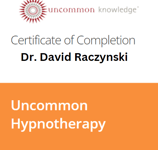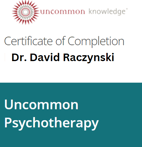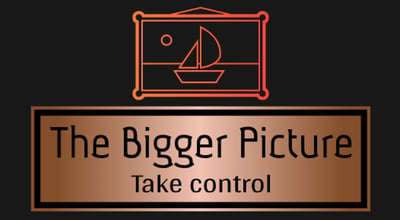A little about The Bigger Picture Therapy Services
Dr. Raczynski's approach
I help everyday people struggling with anxiety, trauma, PTSD, and/or depression find the root of their troubles and take back control of their lives. I take a Solution-Focused & evidence-based therapeutic approach for creating solutions rather than focusing on problems.
We all go through adverse life experiences and have circumstances that can take a toll on our emotional well-being and make us feel “stuck," "stressed," "anxious," "depressed," or "hopeless." Additionally, it's often not obvious where these unwelcome feelings are coming from or what to do about them. I pride myself on getting to the root of the problem so that it can be permanently resolved.
I utilize Cognitive Behavioral Therapy along with a variety of other modalities depending on the individual needs of each person. I can assist you to be able to step outside of all of the situations you are emotionally invested in, and take a good objective look at what is really going on. Then, together we can form an individualized plan of attack aimed at the root cause of the problem.
When it comes to trauma, the stress of the past can sometimes end up following us, and it can continue to drive how we feel in the present. This can keep us in an alarmed state, even when we consciously know that it shouldn’t. The good news is there are ways to keep the past in the past and significantly reduce or even eliminate the emotional influence it has over our lives.
There is no "magic wand" that works for everyone, so my goal is to work with you to find what works for you specifically. In every session, you will be met with kindness, unconditional positive regard, and an occasional dose of humor. You will do some hard work, but you won't be doing it alone.
Fully licensed in IL, VT, CT, and PR.


Click on the "book a consultation" button in the new tab
Finding the Root Cause
To oversimplify: We all have two parts of our mind, and we also have two ways of thinking. We think cognitively with our conscious mind using language, but we also think with our subconscious mind using the language of feelings. To effectively get to the root of many problems, a therapist should be proficient in working with both the conscious and the subconscious parts of the mind. If you try and treat a feeling based problem by focusing solely on thoughts, you will only bring superficial relief at best. Failure to get the the true root of the problem is the primary reason people report that their past therapy was not effective. The goal of therapy should be to get to the root of the problem.


How our past can affect our present
Some memories, though long forgotten, exert a lingering effect we may not even be aware of. Like gravity, their force is invisible, but very real. We don’t always see them, but we certainly feel them. Just as groundwater might only be detectable by the nourishment it brings to the landscape, like mysterious green vegetation in a desert, our memories may only be detectable by the poisonous haze they cast over our lives. For many people, that poison seeps to the surface so insidiously that the harm it causes is a baffling mystery: “Why am I like this?”


Life Storms
Life storms are a normal. What I refer to as life storms can be compared to being caught in the chaos of a violent storm out at sea. At times, it can be as if we are in that strong storm with the waves obstructing our view, making it impossible to see where to steer the ship, and the deafening wind making it all but impossible to communicate clearly. It can be so difficult to get your bearing when you are doing everything you in your power just to stay above water.
However, after we are able to sort out all the emotionally charged circumstances, it’s often more like being able to calmly observe that same storm from a dry shore at a great distance with clarity, and being able to see that the storm is actually limited in space and time and will pass. Once you can view your situations calmly and clearly, deciding what you need to do to get where you want to be is greatly simplified.


Understanding the Anxiety Response
Anxiety, whether generalized anxiety or full blown panic attacks, can be thought of as an over sensitive alarm. When your anxiety alarm is going off and you are experiencing physical symptoms, it can be a truly uncomfortable and even a debilitating experience.
Of course, an alarm is not necessarily a bad thing at all. Under the right circumstances and when it is functioning properly, it can even be an asset. However, this alarm becomes problematic if it becomes over sensitized and starts going off frequently, even when we know that it shouldn't. This can happen for a variety of reasons.
What is important is how we respond to our own internal alarm and the symptoms that our alarm response produces. People often instinctively respond in a way that sends a signal to their subconscious mind that the alarm response is justified. This only serves to reinforce the alarm response.
The good news is that it is possible to learn new ways of responding to your anxiety alarm. These new ways of responding can send the signal to your subconscious that the alarm is not necessary. By doing this consistently, your mind can learn to desensitize its own alarm response and this allows you to regain control of your life.








Click on "book a consultation" in new link
Support: (331) 231-2187
Email us at: support@thebiggerpic.org
© 2024. All rights reserved.
National suicide & Crisis hotline #: 988




